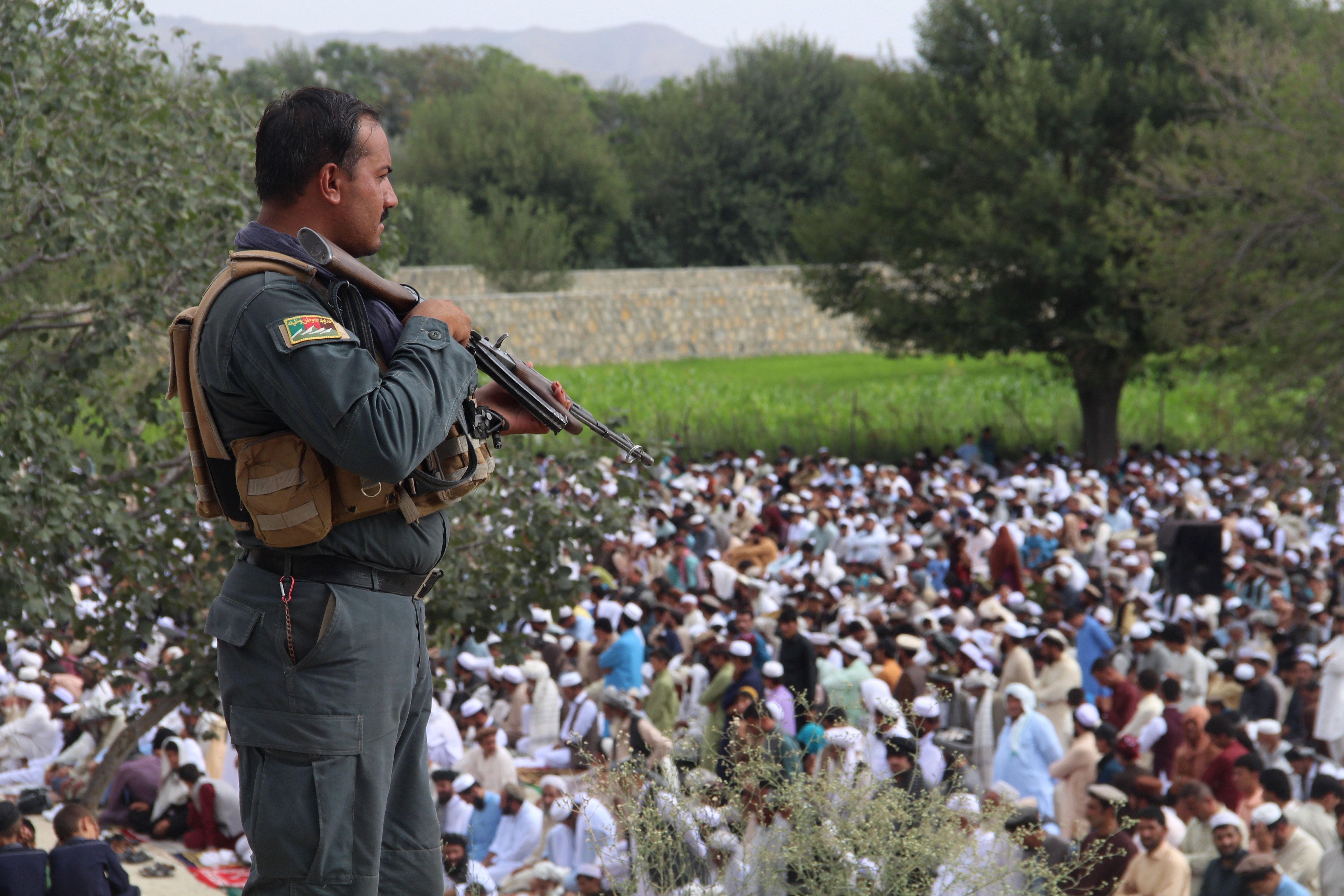KABUL, AFGHANISTAN — Talks between the United States and the Taliban came to an end on Monday without a much-anticipated agreement to end America’s longest-ever foreign war.
The latest round of negotiations went into two days of the Eid-al Adha holiday without a breakthrough. But as recently as Sunday, the top U.S. negotiator Zalmay Khalilzad had expressed the hope that peace was imminent.
“I hope this is the last Eid where Afghanistan is at war,” he wrote on Twitter. “I know Afghans yearn for peace.”
Eid Mubarak. I hope this is the last Eid where #Afghanistan is at war. I know Afghans yearn for peace. We stand with them and are working hard toward a lasting & honorable peace agreement and a sovereign Afghanistan which poses no threat to any other country.
— U.S. Special Representative Zalmay Khalilzad (@US4AfghanPeace) August 11, 2019
The talks, which do not include any official representatives of the Afghan government, have largely hinged on two issues: the U.S. seeking an assurance that the Taliban will not allow Afghanistan to be used as a base for foreign armed groups, and Washington announcing an official withdrawal date for the 14,000 U.S. Service members that are still in the country.
When this latest round of negotiations began in Doha on August 3, rumors of potential ceasefires, announcements of a U.S. troop withdrawal and any number of other developments were expected to be announced.
But later Monday Khalilzad, the Trump administration’s lead negotiator, tweeted that much of the discussions centered around “technical details,” and that he was on his “way back to DC to consult on next steps.”
We've concluded this round of talks that started Aug 3 between the US and the Taliban. Over the last few days, the two sides focused on technical details. They were productive. I am on my way back to DC to consult on next steps.
— U.S. Special Representative Zalmay Khalilzad (@US4AfghanPeace) August 12, 2019
As with every previous round of talks, the discussions took place behind closed doors, with no official details of what specifically was addressed and what remains to be hashed out.
What exactly the “next steps” Khalilzad — who served as George W. Bush’s ambassador to Iraq and Afghanistan — referred to are is still under question. However, when Secretary of State Mike Pompeo visited Kabul last month, he made it very clear that he wanted the matter resolved quickly.
“I hope we have a peace deal before September 1. That’s certainly our mission,” Pompeo said during his seven-hour trip to the Afghan capital in July.
Last week, the ex-Olympic Committee director during the Taliban’s five-year rule, Mawlavi Abdul Shokor Mutmaeen, had seemed to be hinting at an important development, when he said: “Some major breakthroughs were made and the talks are moving on about some remaining issues and hopefully this will be finalized in the near future.”
Adding more uncertainty to the talks are planned presidential elections in Afghanistan scheduled for September 28.
During an Eid address on Sunday, Afghan President Ashraf Ghani claimed that during a meeting with Pompeo, leading Afghan politicians suggested he remain in power until the peace negotiations were complete.
“In the presence of the secretary of state, respected figures suggested that elections should be delayed and that I can remain in power,” Ghani said as he rebuffed the offer.
In that same address, while negotiations were still taking place in Doha, Ghani said: “The fate of Afghanistan will be decided here in this homeland … Our future cannot be decided outside, whether in the capital cities of our friends, nemeses, or neighbors.”
Doha and Washington are not the only foreign capitals to take an active interest in the Afghan peace process. While talks continued in the Qatari capital, the government of Uzbekistan — whose limits on religious freedom have been of concern to both the United Nations and Human Rights Watch — invited a Taliban delegation, including their Political Deputy, Mullah Baradar Akhund, to visit Tashkent.
In a statement issued in the lead-up to the Eid holiday, Mullah Haibatullah Akhundzada, the current leader of the Taliban movement, said: “My instructions to you are that you give full attention to protecting, helping and comforting your believing nation during Eid days. Take all necessary steps for the well-being and security of your fellow compatriots. Visit the families of martyrs, disabled and prisoners and assist them to the best of your capabilities.”
The Taliban’s Eid messages have largely ignored politics and opted instead to focus on the protection of civilians at a time when both they (along with other armed groups) and the Afghan National Security Forces and their foreign allies have been accused of attacks and operations leading to mounting civilian casualties.
Haibutallah’s message came one day after a Taliban-claimed car bombing on a busy Kabul road led to the deaths of at least 14 people and the wounding of more than 100 others.
